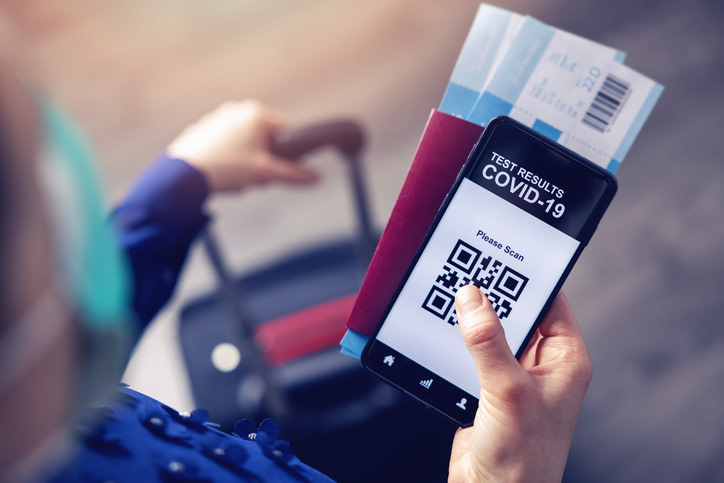Spring break is right around the corner, and while many of us wish it weren’t so, COVID-19 is still very much here. While many parts of the country have decreased the restrictions of COVID-19 travel mandates, getting tested before, during, and after traveling is always the best practice.
Below we cover which test is best, we explain the difference between the test types and also provide tips on how to identify a trustworthy testing site. Be sure to check with your destination as to which COVID-19 test is accepted before you travel.
What Test Is Best If I’m Planning on Traveling?
The RT-PCR test is the gold standard for COVID-19 testing, according to intensive studies.
PCR tests have been proven to be the most accurate of all tests. Often, if you test directly with the lab, same-day or 24-hour results are available. Due to the high volume of testing, some labs are experiencing delays in results. It’s wise to check with your testing location prior to testing for their test turnaround times to ensure your results will be returned to you in time for your trip.
For those looking for something with faster results than the traditional PCR test, the Rapid COVID-19 RT-PCR Test is a great option. This test can be completed in minutes.
Rapid antigen tests are becoming increasingly more common. In some areas, rapid antigen tests may be deemed acceptable for travel. While these tests are widely available for home-use, in order for the rapid antigen tests to be used for travel purposes, the tests MUST be performed (or proctored) by a CLIA-certified laboratory.
There is often confusion surrounding the difference between PCR and Antigen tests. The Cleveland Clinic provides the following description, including clear time frames and uses for the two tests:
Polymerase chain reaction (PCR): This tests for the presence of the virus’ genetic material as it breaks down. PCR is the most reliable and accurate test for detecting active infection but can take hours to perform. There are a few quicker options, however.
Antigen test: Antigens are bits of proteins on the virus’s surface. These molecules can trigger an immune response when coming into contact with a recognizable virus. Antigen tests typically take only 15 to 30 minutes. However, rapid antigen tests are most accurate when used within a few days after you notice symptoms when the most significant amount of the virus is present in your body.
Where is the best place to get tested?
Testing for COVID-19 directly with a trusted laboratory is the best way to get accurate and fast results. When looking for Covid-19 travel testing, be certain the laboratory you choose is CLIA certified. This certification is not only required for travel use, but it also gives you piece of mind that you can trust the accuracy of your results as well as your private patient health information.
Direct to lab testing has become much more accessible, and now you can find options for Rapid Antigen and Rapid or traditional RT-PCR COVID-19 testing. A mobile concierge can come to your home to conduct testing in some areas, enabling you to test without going to a waiting room or out in public. Another benefit of working directly with a CLIA-certified lab for testing is that results are often provided in real-time versus having to wait to hear from the doctor’s office.
Many people were hoping that the vaccine would bring an end to testing; unfortunately, this is not the case. With the increase in cases in certain parts of the country, it is clear that you can still contract COVID-19, even if you are vaccinated.
If you return from your vacation and have symptoms, get tested. The CDC recommends that fully vaccinated people test for COVID 3-5 days following known exposure to someone with suspected or confirmed COVID-19. If you have any questions, concerns, or need testing, we can help. Contact My Labs Direct at 877-355-7978 or visit MyLabsDirect to learn more.








